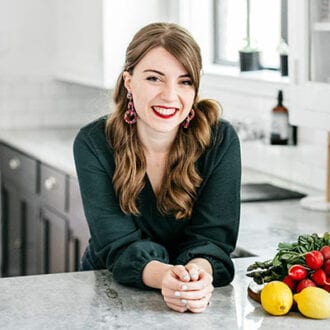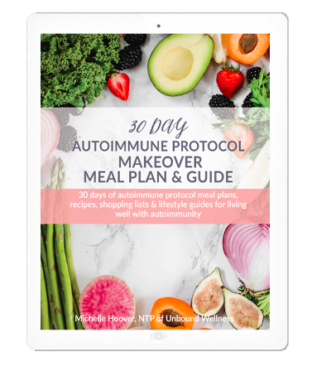My Obsessive Compulsive Disorder Story
Quick disclaimer. I’m not a doctor or a mental health professional. This is my own personal journey and is not to be used for medical advice, diagnosis, or treatment.
If you follow me on Instagram, you’ll know that for months I’ve been sharing that I’ve been undergoing mental health treatment and have a new diagnosis. I’ve shared that I’ve been experiencing some panic attacks, bouts of anxiety, sleep disturbance, and even leaving the house to run to the post office was a struggle. So, I won’t bury the lead. I’ve been diagnosed with obsessive-compulsive disorder.
You may think that you understand obsessive-compulsive disorder… heck, I thought I did. I thought there was no way I had it, and that all of my issues were purely anxiety related. However, through my diagnosis and healing process, I’m learning more and more what we all already know in some form… all mental health and especially mental illness are incredibly misunderstood.
So, why am I talking about this on a food & autoimmune health blog? Because it’s all connected, and because I advocate for health and healing in all capacities.
I’m sharing my story to break the stigma around mental illness being taboo.
This is still a fairly raw time to share my story. I’m seeing a lot of progress and feel like I have so much more control over my situation. However, I’m very aware of the stigma against mental health. This is my full-time job, and my business and I’m sharing something that is still considered taboo. I’m aware that I have something to lose in sharing my story and having people judge me for having a mental illness. We shy away from it. We think it’s weird, dangerous, and just something to never talk about. We don’t think that everyday people have these struggles. They do.
Whenever I told people who were close to me in my life that I had clinical OCD and was undergoing treatment, they didn’t believe it. “You? Really?” No one saw these clear OCD behaviors in me for 20+ years. Not even myself. Why? Partially because it’s so misunderstood, but also because everyone just viewed me as an everyday person making chicken nuggets and minding their own business. We just don’t see people who seem happy and “normal” as having a mental illness. They do. I do.
I’m sharing my story to try and break that stigma. I want to share that the Michelle you know now that openly has OCD and the Michelle you’ve known for the past few years here on my blog has always been the Michelle that has OCD. That doesn’t make me any less of a person, any less capable of doing a good job at my work, any less loving, any worse of a wife, friend, cat owner, or any less normal or worthy of being treated as such than someone else who doesn’t have OCD. I may smile and genuinely feel happy one moment, by just a few moments later I’m wracked with anxiety, fear, and the extreme need to carry out compulsions. And that doesn’t make me any less of a human. That doesn’t make my illness something to be feared or a topic that’s off limits. I’m the same person with just another invisible illness and that story needs to be heard.
Before I get into my diagnosis…
At risk of sounding closed-minded (which really, I’m not) I ask everyone to just be sensitive and aware that I’m already undergoing treatment with a professional and am having success and not sharing my story to seek advice on treatment. I really do appreciate the kindness of each and every one of my readers and I’m so grateful to be in this community where we can support each other. However, I have hundreds of thousands of readers of my blog and taking in advice on different strategies for managing my disorder that I’m already taking steps to heal from thousands of people can be extremely overwhelming and potentially counterproductive to my progress.
Thank you for understanding that I’m still living this, and I’m undergoing treatment on this healing journey!
How was I diagnosed?
I’ve known my entire life that I’ve had some form of anxiety. I was always anxious as a kid and I started having panic attacks in college. I always had irrational fears and behaviors. I went to a myriad of therapists and told one that I was suffering from anxiety. She immediately prescribed me anti-anxiety drugs and said I had a generalized anxiety disorder, but it still didn’t feel right.
Diet and lifestyle changes really did make a huge impact on my mental health as a whole. Less coffee, sugar, and grains made me a more balanced person to where my anxiety wasn’t always a huge issue in my adult life.
However, in the past several months, those symptoms have flared. I’ve taken on a lot of projects and changes, (very exciting ones like going fulltime with my blog and others.. but still big changes) have had some other health triggers, (which I’ll explain later) and honestly… you can’t always pinpoint exactly why I flare happened. But a flare did happen.
All of a sudden my anxiety was back with a vengeance. I was having panic attacks, I was picking up unexplainable habits, and irrational fears and guilt over seemingly nothing. I have trouble leaving the house some days.
I started searching for therapists specializing in anxiety. But again, it didn’t feel right.
Now a little peek into my blogger’s brain and the random catalyst for my diagnosis… I was thinking of a funny and fun Instagram story to post where I asked my Instagram followers, “If you were on an episode on MTV true life, what would it be?” I thought I would get some fun answers, start some interesting conversations, I would say, “True Life I’m obsessed with my cat”, “True life I’m always looking for green plantains”, etc. Then I had a flashbulb memory of watching an actual episode of this show… “True Life, I have OCD”. At that moment I realized “oh my gosh… why do I relate to that so much? Is that me?”
I went onto YouTube to find similar clips that I saw on that show all those years ago about people with OCD. What they did, how they felt, how they felt so trapped and confused. That was me.
This was incredibly random, but I truly feel like God was leading me up to this moment of discovery after feeling so off about anxiety exclusive treatement for so many years.
I googled “OCD therapist Dallas, TX”. I found Justin K. Hughes and made an appointment. I wasn’t going to jump to any conclusions. I told Justin that I had symptoms similar to that of OCD. He told me that he appreciated me being humble and not self-diagnosing… which I thought was important to do! But I was indeed diagnosed with obsessive-compulsive disorder. I was in the moderate range on the spectrum, so I was able to function without medication or inpatient treatment, but it was severely impacting my everyday life and I really did need treatment to recover.
Really, what is OCD?
We act like everyone who has ever cleaned out their kitchen pantry has legitimate OCD. That’s not true. OCD is not the feeling you get when you see a tile out of place. OCD is not a preference for blue pens over black. OCD is a debilitating mental illness. The CDC ranks OCD in the top 10 most debilitating illnesses. That’s illnesses as a whole… not just mental illnesses! This is a real thing that people suffer from!
OCD is characterized by having some sort of persistent intrusive thought, fear, image, etc. that’s disturbing or distressing (the obsession). To lessen the discomfort, there are rituals and behaviors done that feel like they stop the intrusive thought (the compulsion). So for example, a person may have an intrusive thought that they will become sick and die from contamination of some kind, so they obsessively clean. Most of the time the person knows that their fears and compulsions can be irrational at times, but that’s not enough to stop it. People with OCD literally have brains that are wired differently. It’s not as easy as just snapping out of it.
The problem is that it’s a vicious cycle. The compulsion only does so much to quiet the obsession. It may numb it for a few moments, but it comes right back. OCD can also continue to grow. The obsessions and compulsions get more distressing, more intense, and the person feels trapped in a disturbing and laborious cycle that they just can’t break.
How long have I had this? Why did it take me so long to get diagnosed?
I’ve had varying degrees of OCD for as long as I can remember. On average, it takes over a decade for people to get diagnosed with OCD. Why did it take me until 27 to get a diagnosis?
- Poor understanding of mental health. I thought OCD was all about people wanting to arrange their desk to look a certain way. I didn’t understand what it actually was and that I could have it.
- The stigma around mental health. If I spoke up about my symptoms earlier, I likely would have gotten help earlier. However, there’s such a huge stigma around sharing these things and I was sucked in as well.
- Poor mental health care. Cue the therapist that just threw clonazepam at me. Doctors and therapists are just people who make mistakes and I don’t blame that therapist at all. However, it’s a reality of my story and that of so many others.
What were my symptoms?
OCD manifests in a myriad of different ways. It all goes back to the core fears and purpose behind why you’re in this cycle. For me, my fears were around something bad happening and it is my fault because I made a mistake. So, leaving the oven on and the house burns down, etc. I also had these fears around driving, and in social situations where I was afraid of offending a friend, colleague, etc. and damaging the relationship.
The way that my compulsions were manifesting was checking. I would check the locks countless times before leaving the house or going to bed, and often had to turn my car around to check again. I even resorted to taking out my phone and taking photos and videos of locks and appliances. Once I got in the car I would immediately check the security camera in our house. The rest of my time out would mostly be consumed by me thinking of the worst possible scenario that was going on at home.
I couldn’t enjoy time out with my husband, or family or friends because I was too busy thinking about the house burning down, someone breaking in, getting into a car accident on the way home, my website crashing and my business failing, and on and on and on. I had such a hard time leaving the house and once I left, I was a nervous wreck about everything.
I would do the same on vacations, work trips, and more. Simple everyday tasks like leaving the house, driving, and more were followed by severe anxiety, fear, and endless cycles of compulsions.
No one persons OCD looks the same. That’s just the way it was manifesting for me. A lot of people have symptoms that may look like OCD but don’t necessarily have it. It all goes back to why you’re doing those behaviors and what the fears are behind them.
So, how does this mental illness diagnosis change me as a person?
Here’s the thing. I’m still the same person. I can pretty much guarantee you that will not randomly see OCD behaviors in me unless you’re my husband. Most of my behaviors go on at home, and my fears are very internalized. If you didn’t notice it before, you won’t notice it now. In fact, there are far fewer outward signs of my OCD now.
I have always been the person with OCD… I’m just getting treatment now and feel better than I was before.
This doesn’t change who I am as a person. If anything, it makes me more empathetic to those struggling with mental illness, and more on fire to advocate for being open about mental illness to break the stigma.
How am I doing now? What is my treatment like?
I’ve been under the care of a therapist since the summer and I am seeing major improvements. I used to be unable to go to bed without checking the locks and appliances at least 5-6 times (sometimes much more). I’m down to only doing it once and can sometimes forget altogether! That’s just one example, but across the board, I feel much better.
My treatment has been a lot of talk therapy, exposure therapy, and cognitive behavioral therapy. I’ll talk through a certain compulsion with my therapist to really get down to why I’m doing it and what the fear is. From there, we make a plan for how I can expose myself to that fear and work towards doing fewer compulsions.
This is the treatment that’s been working for me personally, and not a recommendation for what everyone should look into for OCD. What I do think everyone should do is work with a therapist to customize your own treatment.
Where am I going from here? How is this related to other health concerns?
I’m still undergoing treatment and have even brought my husband to therapy to help me in recovery.
Beyond therapy, I felt in my gut (no literally, my gut) that there was likely another health trigger for my OCD. Our mind and body are one thing and should be treated as such. The gut is tied to the brain through the vagus nerve, and I was always aware that this could be connected to my OCD. I recently saw my doctor (Dr. Anne Coleman) to undergo some follow-up gut health testing and found something literally astonishing to me!
My recent stool test showed a lot of improvement to the integrity of my gut lining as well as my digestion from the last one a few years ago (yay, real food!). However, I had a lot to be desired with my good gut bacteria. Our gut bacteria send signals to our brain, so it’s so important to have healthy flora. Something else that popped up on there that I had never seen before was streptococcus. Yes, strep in my gut! My therapist, my doctor, and other articles I read online all confirmed with me that streptococcus is correlated with mental health disorders like PANADAS and OCD.
My doctor referred me to a local specialist to help me better address the strep (more on that after I see that doctor, so stay tuned!), but other than that I’ve been doing a lot of what I already preach about good gut health, which is…
- Taking a probiotic prescribed by my doctor
- Eating more fermented foods
- Taking better care of my liver (with supplements like milk thistle, less sugar, etc.)
- Focusing on my digestion
- etc.
For more about gut health and mental health, check out this article where I chatted with Healthline about managing my anxiety and mental health struggles with focusing on my gut health!
Wait, so diet didn’t just cure all of this?
Diet plays a role in everything. But it’s not a cure-all.
My mental illness was at the point where I needed one on one care from a therapist and when I was working as an NTP myself, I was constantly telling my clients to pursue therapy. Diet can help improve your gut health, your mood, and so forth. But diet cannot change your past traumas, fears, and behaviors. Diet matters… but there’s so much more.
So many of my OCD triggers are tied to past traumas/experiences. You just can’t eat enough kale to heal trauma.
I think that everyone can benefit from both a healthy diet and therapy. They’re not exclusive. They can work together!
What should you do if you feel like this may be you?
Talk to someone. I’m not a therapist or a mental health professional in any way, so I cannot answer any questions related to your own personal mental health journey. I don’t have the expertise to talk beyond my own story and experiences. Everyone’s mental health looks so different.
Well, that was a lot! I hope that this helped you understand OCD more, feel like mental illness is just a bit more understood, and maybe it even inspired you to seek some of your own help. Whatever it may be, I’m sending so my love and prayers your way. We all have a journey and story that deserves to be heard and we all deserve help.








You’re not alone! I, too, have OCD and was un-diagnosed for years. OCD is for people who hate asymmetrical patterns or need the pictures on the wall to be totally straight, right? Or people who need to put their groceries on the belt in just the right order. Ha ha! They’re so quirky!
I didn’t know what I had was OCD. My intrusive thoughts were varied — for a while, I obsessed that someone was following me and would rape me if I deviated from my elaborate bedtime routine. For another period, I was terrified of leaving the stove on and burning down my apartment, and I started taking pictures of the stove knobs so I could double- (or triple- or quadruple-) check them without getting out of bed. For a while, it was the sudden crushing panic of being SURE I was going to get fired from my job or being SURE something terrible was going to happen to my nephew or being SURE my husband was going to leave me. For a while, it was feeling panicky if I cracked a knuckle on one hand and not the other or stretching one side of my body and not the other.
Diet’s helping. Exercise is helping. Medication is helping. But it’s still a struggle! I still have intrusive thoughts. I still rely on my husband counting the locked doors every night before bed. I still have elaborate bedtime routines. But it’s not crippling any more… and it’s made me more empathetic.
Living with OCD is a weird and often unpleasant adventure. But it gets easier to manage and can make us better people!
Wow, your symptoms sound so similar to mine. I took pictures of stove knobs too. Thank you so much for sharing your story. So happy to hear that you’re finding relief and praying that you continue to find more healing <3
I’m so proud of you for telling your story even though you feel there is a risk involved. I’m working through anxiety, and I can tell you that the less I try to hide it, the easier it is to live beyond it. Keep shining your light in the darkness – God gave you this platform for a reason, and it seems like He intends you to use it for way more than excellent recipes~
Thank you so so much Gwen. Praying for you on your healing journey <3
Thank you for sharing! ❤️ How can I pray for you?
Thank you so much! I would love prayers for continued healing and wisdom on this journey <3
Thank you for sharing this! I too deal with anxiety and some depression. It manifests differently for me in that I don’t think I have OCD. However, I’m learning so much about how it’s not just one thing causing the anxiety. My diet is under control (AIP for Hashimotos), yet hormones and past trauma along with gut health all contribute. Everything is connected! I too am seeing a counselor and just am approaching it from all angles. I’m so thankful you shared your story. It lets me know I’m not alone. I know God never leaves me and has shown me so much through all of this. And it’s just helpful to hear others’ stories too. Thank you for being brave! I’m praying for you!
Thank you so much for sharing your story! So true… God NEVER leaves us! He’s carrying you right now <3 I’m praying for you too, girl. Thank you for the love and support.
Bless you for sharing your story. You’re strong & brave to seek help, and to share with others. Thank you for adding your vouce to raising awareness for mental health for everyone.
Thank you so much, Cathy <3
I have to wonder if this isn’t my issue. I don’t really obsess over doors being locked but I do constantly have a fear of choking. I mean, constantly. There are times where I can only drink liquids and even that is hard sometimes. I also had a very negative reaction to soy and almonds and now I”m almost military in reading of labels and over analyzing them. I had a food panel done and honestly, I think it made me worse. Fish came back as a strong reactor, so guess who won’t even try fish anymore? Yeah, that’s me.
I’ll definitely reach out to my FM and see if he’ll refer me to a therapist that could possibly help me.
Thank you for sharing your story, I’m sure it will help many!
Thank you for sharing your heart, Brie. So happy that you’re looking into seeking further help! It changed my life!
My son has PANDAS and as I was reading your post I totally thought it sounded similar to our experience. His symptoms are definitely tied to his gut health, and we are in the process of killing his candida overgrowth in his gut and healing and sealing it with probiotics! I wish you the best in your road to recovery and I thank you for writing your story. We as a society are becoming over medicated and we need to begin seeking out the root causes of our illnesses, mental and physical!
My therapist and I were talking about this too… we’re only just scratching the surface with understanding all of the gut-brain connection. Sending so much love to you!
I love you Michelle and I am so proud of you for keeping your integrity and the continued goal to seek treatment. Treatment is just one tool in your tool box.
You will have amazing days and some not great days.
I’m here for you.
What probiotic did your doctor prescribe? Thanks for sharing.
Thanks for being brave and sharing your story, Michelle. Healthy food and being positive doesn’t cure it all — although the health and wellness community seems to say otherwise with certainty. I’m glad you’re taking steps towards feeling like the best version of yourself and look forward to hearing how much you improve as you continue this journey!
Thank you so much, Whitney!
Thank you for sharing your story and bringing awareness to mental health. I have autoimmune issues I am working to heal, but my husband struggles with anxiety and mental health issues. I so wish food couldn’t completely heal him, but we know it is more complicated than that. I appreciate reading your perspective so I can understand a little better about what he goes through. Just as he doesn’t understand my diseases and how I feel, it’s hard for me to understand how he feels. However, we both are coming together to support each other and heal and be the people and couple that God desires for us both! Thank you again!
Thank you so much for sharing, Cassandra. Sending so much love to the both of you on this journey! Praying for healing <3
I’m new to your blog but I’m so psyched for you! It’s wonderful that you figured this out and got help. I would be so proud of myself if I were you. You are helping so many people with your honesty and the way you teach concepts. But most of all, you are helping yourself and I’m just so happy for you.
I have a small bit of this but I realized it young and got some help. Now I’m doing the natural health thing for other issues. I never realized the gut-brain connection until now. thanks again! You are a lovely person. Of course you did not go down in my mind by sharing this – you went way way up! Not my opinion or anyone else’s should matter. It’s so true that we don’t understand mental health issues but hopefully with people like you opening up, this will get better.
Thank you so, so much Irene! I’m so glad it resonated with you. The gut-brain connection is something I’m learning more and more about as I walk this path. Sending love!
Thanks for sharing your story. Wishing you get better and better and many blessings to you and your family.
Thank you Maria <3
Thank you for sharing so openly about mental illness. I struggle with anxiety and depression. Diet, therapy, and medication have helped so much. I am still learning to accept my mental illness and posts like yours make me feel less alone.
Thank you so much. You’re not alone!!
You’ve performed a very important service to people by posting your story, Michelle. I sense that you will do very well with treatment because among other things you have a strong meta-cognition of your symptoms now, and that is crucial for ameliorating OCD. I have a close friend who has had OCD for about 50 years (from childhood, also the checking kind, mostly), and while I know you’ve asked for no advice as to what to do, I hope you won’t mind my mentioning what you might *not* want to do. I’ve been witness to the way this friend has been ravaged by the use of Benzodiazopenes. American doctors tend to overprescribe them. In reality, one shouldn’t take them for longer than a week. Anyway, you are so much on the right track, and thank you again for being upfront about this challenging disorder. I’m glad you’ve gotten some relief.
Thank you so much Susan!
You’re definitely not alone! I got diagnosed with OCD when I was about 12. After I had had strep. Then after another bout with strep that resulted in like 5 rounds of antibiotics I ended up on medication. It’s definitely been an up and down journey with lots of different doctors and therapists. I flared this summer after moving and it was a super rough round! But I improved quicker this time I think because I was in the process of changing my diet. I also tested positive for Lyme but we don’t know how long it’s been there. It’s not fun and I know all about the continuous checking! Thanks for bringing awareness! Especially the much needed connection to gut health and infections! I wish I would have known about them when I was a kid!
Thank you so much for sharing, Scherrie! My therapist and I were talking about this connection today. So much connection. Sending love!
Thank you so much for sharing! I’ve been struggling with my own issues as well and can identify with so much of your journey. Good job for digging in and doing the work for yourself and your health. I love “You just can’t eat enough Kale to heal trauma!” I really needed to hear this. Prayers and hugs your way!
Thank you so, so much Liz. Sending tons of love on your journey!
As a clinical psychologist, I applaud you for your honesty and vulnerability. So many people are struggling with mental illness and feel alone and scared to talk to anyone. I also love, love, love that you have described such a beautiful example of the mind-body connection and how our mental and physical health are related. I struggled so much with anxiety that seemed to precipitate my autoimmune diseases (and definitely caused flares!) and with changes to my diet (AIP fully and now I’ve incorporated so much back) it’s not only radically changed my physical health but my anxiety has improved too. As a mental health professional I believe in not only therapy, but the power of your nutritional and environmental choices too (makeup, cleaning products, etc.) and have always been a huge fan of yours!
– Liz
Ps. Your AIP chocolate chip cookies are life — I have been surviving morning sickness with my pregnancy by eating these almost daily 🙂
Thank you SO much, Liz! Thank you for what you do with your amazing work as a psychologist as well <3 SO happy you like the cookies!!!
This is seriously so amazing of you. If you ever feel scared or second guess your decision to “go public” and share your story, DON’T. It’s inspiring.
I suffer from social anxiety disorder and ADHD. I almost NEVER talk about it with anyone, especially my online following because I always feel afraid that people will think differently of me, or not understand. But hearing about someone else in this space going through something of their own brings me comfort that I am not alone.
I would like to ask if you felt like therapy took some time before it started helping. I’ve been to a few therapists but I always stop going after a few sessions. I’m not sure if the person just isn’t the right fit or if I’m having doubts that anything will ever change. Maybe I just need to give it more of a chance.
Anyways, thank you again for being so brave and sharing this. God bless you my beautiful sister.
Thank you SO, so much Chelsea. Thank you for sharing your heart <3
I think it did take some time for therapy to REALLY catch on. It took a while to really see the changes, but they are totally there. Everyone is different though… that’s just my experience.
Sending love <3
You are so brave to share. I don’t have OCD but have other diagnosed mental health issues. It is so important to get this information out of the darkness. I appreciate your honesty and am thankful treatment is helping you!!
Thank you so much Debbie <3 Sending so much love to you!